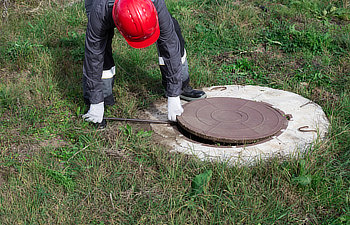
Septic systems are an efficient and environmentally friendly solution for wastewater management. They rely on natural processes to treat household waste, ensuring that clean water returns to the environment. However, these systems have limits, and one of the quickest ways to overwhelm your septic system is through excess water usage. Metro Septic in Cartersville is here to explain the domino effect that could take place in your backyard if water consumption isn’t monitored.
Overloading the Septic Tank
A septic tank is designed to hold wastewater long enough for solids to settle at the bottom, allowing clarified water to flow to the drain field. When too much water enters the tank, it doesn’t have ample time to treat the water effectively. This can lead to solids being carried into the drain field, which can clog the system and lead to a potential system failure.
Disturbing the Delicate Balance
A healthy septic system is a balanced ecosystem of beneficial bacteria that break down waste. Excessive water can dilute this bacterial concentration, impeding their ability to digest and treat the waste. If the bacteria can’t do their job efficiently, solids build up more rapidly in the tank, necessitating more frequent pump-outs.
Straining the Drain Field
The drain field is the final stop for treated wastewater before it’s absorbed back into the ground. However, when the system is flooded with water, the ground becomes oversaturated, preventing the water from dispersing properly. This can lead to pooling on the surface, foul odors, and even groundwater contamination.
Shortening System Lifespan
Septic systems are designed to last for decades, but excessive water usage can significantly cut that lifespan short. Constantly overloading the system puts undue stress on its components, leading to rapid wear and tear, frequent repairs, and earlier-than-expected replacement.
Tips to Reduce Water Usage
- Space Out Laundry Loads: Instead of doing all your laundry in one day, space it out over the week. This gives your septic system time to recover between loads.
- Fix Leaks Promptly: A dripping faucet or running toilet can waste hundreds of gallons of water a week. Address these issues immediately to save both water and strain on your septic system.
- Install High-Efficiency Appliances: Modern washing machines and toilets use significantly less water than older models. Consider upgrading to reduce your water consumption.
- Practice Water-Smart Landscaping: Using native plants or those adapted to your region can reduce the need for frequent watering.
While using water is a daily necessity, it’s crucial to be mindful of consumption, especially when your home relies on a septic system. Being proactive and aware can save you from hefty repair bills, safeguard the environment, and ensure that your system functions efficiently for many years to come.
Call Trusted Septic Experts Today!
If you have concerns about your septic system or need more advice on optimizing its performance, Metro Septic in Cartersville is here to assist. Let’s work together to keep your septic system in peak condition.

